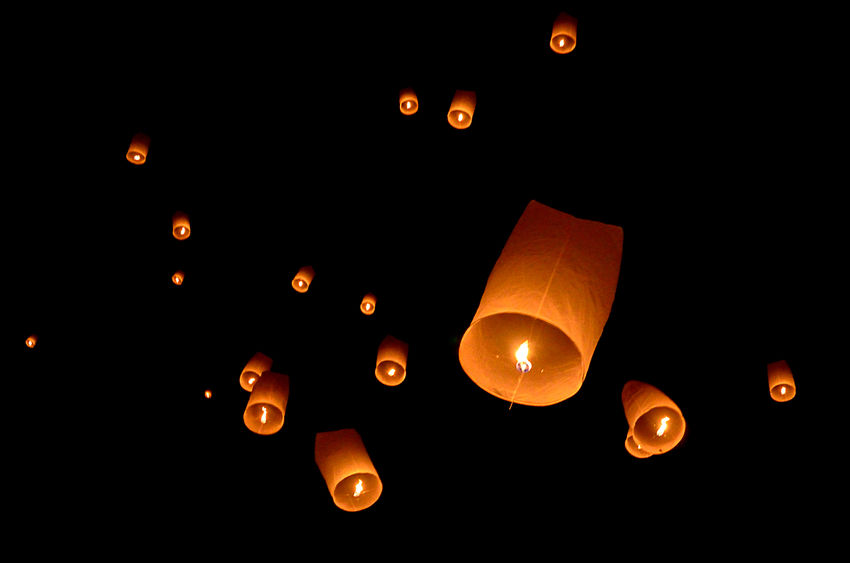
The NFU has reminded the public about the dangers of sky lanterns this Bonfire Night due to their fire risk and the dangers they pose to livestock.
The union has heard from farmers about the devastating impact sky lanterns can have, such as their ability to cause distressing injuries to livestock.
The products can cause injury and death to horses and livestock by ingestion, entanglement and entrapment.
Sky lanterns, which increase in popularity on Bonfire Night and around New Year, also bring an added risk of fire damage to farms and the wider countryside.
They are constructed from paper with a wire or wooden frame and contain a lighted candle.
When they land, they have been known to set fire to sheds, causing serious damage and loss to the farm business.
The NFU and other rural organisations continue to call for an outright ban on the sale of sky lanterns.
The union tweeted on Thursday 4 November: "Please think twice before using a sky lantern this Bonfire Night.
No matter the occasion, sky lanterns still injure animals, create litter and cause fires ?? Please think twice before using a sky lantern this Bonfire Night
— National Farmers' Union (@NFUtweets) November 4, 2021
Help us bring an end to sky lanterns and become a #BackBritishFarming supporter ???? https://t.co/jsnFI2ofmu pic.twitter.com/ScqOhzffMF
"No matter the occasion, sky lanterns still injure animals, create litter and cause fires."
The National Fire Chiefs Council (NFCC) does not support the use of sky lanterns either, and it urges the public and event organisers to refrain from using them.
Paul Hedley, the NFCC lead for wildfires, explained that the body 'does not advocate the use of sky lanterns under any circumstances, at any time'.
"They pose a huge fire hazard, impact on agriculture, thatched properties and hazardous material sites, and risk the lives of animals," he said.
"A fire caused by a sky lantern can be a complex and large scale incident and have huge implications on fire services.
"All emergency services are currently under unprecedented pressure due to Covid-19, and sky lanterns could put additional pressure on the fire service, and further strain on the NHS.”
